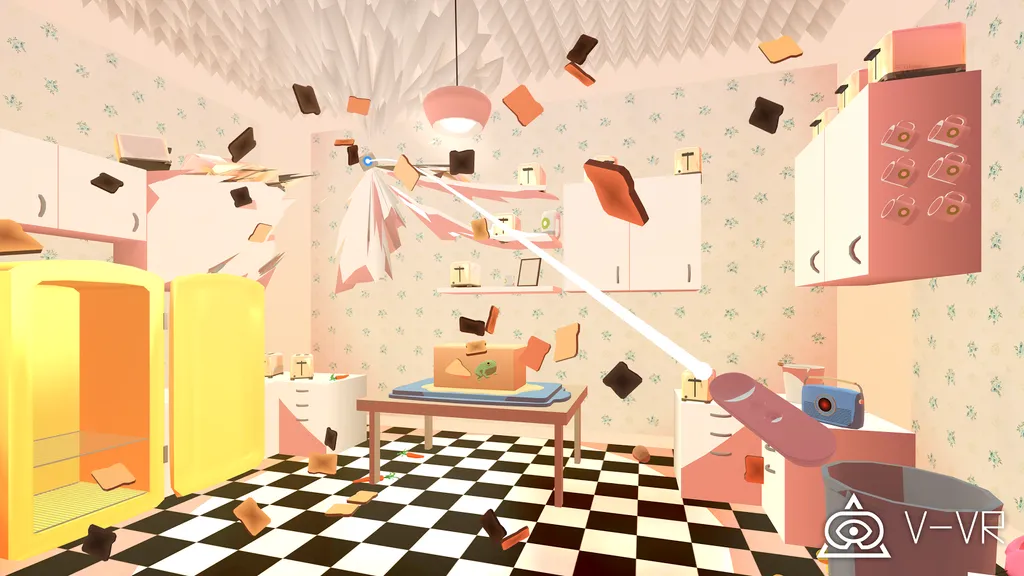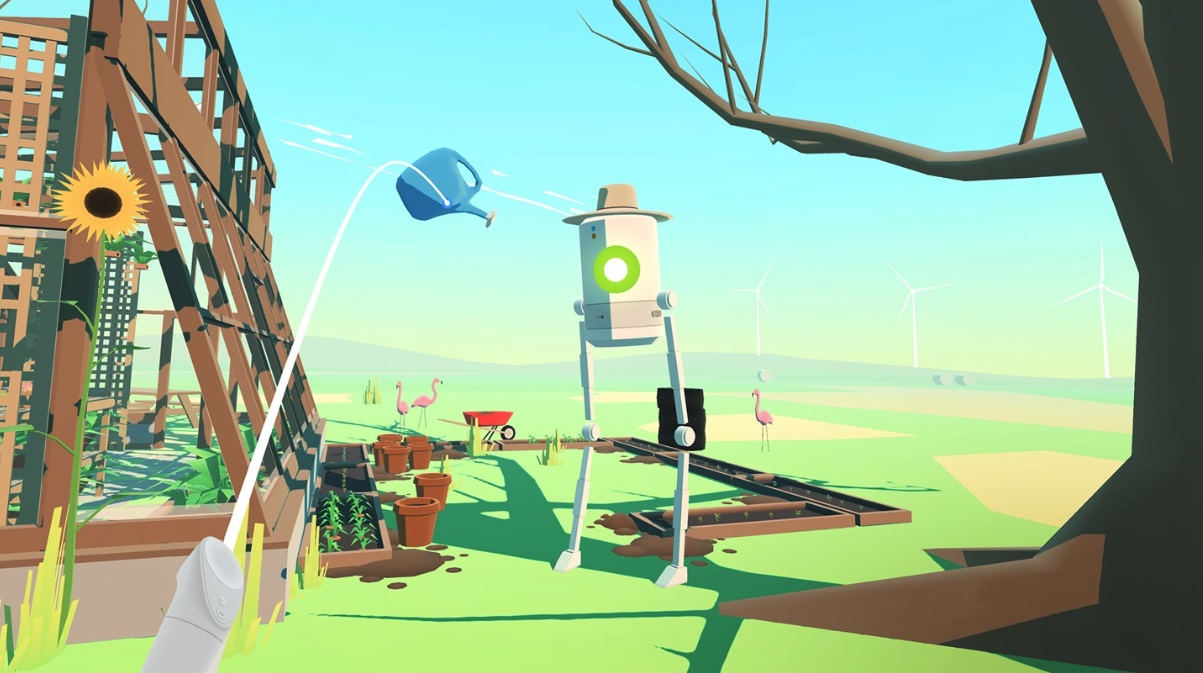It’s a secret shame of mine that we’ve never done a proper review of Tender Claws’ Virtual-Virtual Reality (VVR). In my defense, it’s not exactly a ‘game’ in the conventional sense, and we’ve haven’t really figured out how to handle impressions for these types of apps yet. How do you put a score on something as brilliantly bizarre as this surrealist story of VR gone too far?
But, with the recent release on Oculus Rift, I can at least right that wrong a little and tell you why you need to play VVR.
In this vision of a reality gone weird, you take on the role of a new worker at Activitude, an Aperture Science-esque facility that provides services to AI clients. With the limitless possibilities of VR at your finger-tips, these chores are anything but mundane; sentient butter fetishizes about having perfectly-toasted bread lavishly slapped onto its sides, while a Texan tumbleweed longs to roam free in a runner-style minigame. You warp between realities by putting on virtual VR headsets with the aid of Activitude’s head-of-madness, Chaz.
VVR initially revels in the inherent silly side of VR to glorious effect. You bounce between realities with giddy curiosity, always wondering what ridiculous situation you’re going to find yourself in next. It’s Accounting with a little more nuance, replacing Rick and Morty’s volume for the mild-mannered antics of Portal’s Wheatley. As you go, your performance will be rated by sometimes satisfied but mostly unhappy customers. Suffice to say you’ll probably end up making some mistakes that you didn’t see coming.
But all is not what it seems; it’s not long before you peel back the thin layer of Activitude’s surface and begin to uncover a deeper meaning to both the dystopian corporation and the wider game. Are you really serving AI constructs? Or is there a bigger story behind the gravely-voiced pinwheel that takes such pleasure in watching you water his garden? What about the VR we as headset owners experience now? Where does that reality go when we switch it off?
It’s here where VVR starts to touch on something a little more profound. As you dig deeper into Activitude’s past you start to piece together a puzzle that begins in a society not too far off from where we are now. What initially seems like slapstick mockery starts to feel increasingly plausible, especially if you’re the type that likes to follow along with the confident CEO keynote speeches at Silicon Valley developer cons. In fact, it’s so believable done that I’m even a little surprised the Zuckerberg-owned Oculus picked the studio up to work on its next title. VVR ends up feeling as much as a warning as it is a rollercoaster ride through VR’s future.
Admittedly it does take a little too much of your time getting to the conclusion. If VVR has issues, it’s the moments of uncertainty in which you’re left wondering what to do, or the handful of monologues that drift on a little too long. Though Tender Claws has some brilliantly bold takes on the future of VR, it hasn’t quite mastered the art of delivery in the here and now. VVR thrives on discovery, comedy and thought-provoking revelations, but it can’t always disguise its exposition as entertainingly as it thinks it does.
Such issues are fleeting, though, and don’t detract from the memories you’ll be left with, which I guarantee are unlike any other you’ve gathered from VR thus far. Does VVR mean to discourage us from diving into VR head-first? I don’t think so, but it’s a cautionary tale we’d do well to remember as giant corporations zero in on the digital futures they like to tell us so much about.
Budget Cuts might have the tone, The Lab might have the authenticity, but for my money Virtual-Virtual Reality is the closest we’ve gotten to VR’s Portal 2 yet. I can’t wait to see what Tender Claws does next.
Virtual-Virtual Reality is now available on Oculus Rift, Oculus Go, Gear VR and Google Daydream.



























